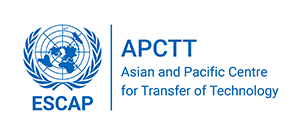DEXA Wave Energy Converter
DEXA is a research network dedicated to developing production viable Ocean Wave Energy converters, based on Plane Angular Modulation, (PAM). A very simple and reliable principle, where two planes or pontoons are floating in the waves, and changing angle relative to each other, when modulated by the ocean waves. The tilt action creates oil pressure in a hydraulic cylinder, to drive a hydraulic motor, and generator to produce electricity. An important benefit of this principle is very high efficiency at low incident wave height, and very low efficiency at high and extremely high waves. This means an almost equal production can be maintained in both low and high waves, and in storms the converter will survive intact, and even maintain a normal Hydrogen production. The DEXA Converter is intended for open ocean deployment with deep water, or GPS / Thruster anchoring. The energy is converted on-site to Hydrogen, which is in turn transported to shore by ship. It's important that a wave energy converter can compete by selling energy on the free market, and not only at government sponsored elevated energy return. The open market return is on scale of 4.67 €c/kwh. The DEXA converter is building on an efficient mechanical principle, and cheap durable building materials. (Mainly concrete). This leads to a weight/output ratio of 1.4 kw/t (Other well known systems have as low as 0.2 kw/t). Combined with the use of low cost reinforced concrete, this contributes to the good economy of this particular wave energy system. This means a DEXA converter constructed in concrete, and with a relatively low material consumption per kw, will pay for it's used raw materials up to 20 times faster than other known systems. For more information, contact: DEXA Technologies Ltd Christiansgade 1 DK7500 Holstebro Denmark Tel +45 31139101 E-mail: lc@dexa.dk
Sector: Renewable Energy Technologies
Country: India
Area of Application: Tidal / Ocean energy
Keywords: DEXA, Wave energy, Converter
Advantages: Almost equal production can be maintained in both low and high waves, and in storms the converter will survive intact, and even maintain a normal Hydrogen production.
Environmental aspects: Energy efficiency
Development Status: Commercial Prototype
Legal Protection:
Technical specifications:
Transfer Terms: Consultancy , Equipment Supply
Target Countries:
Estimated cost (US$):
Upload any relevant document:
Contact Person: APCTT (UNESCAP)
Address: Asian and Pacific Center for Transfer of Technology (APCTT) C-2, Qutab Instituational Area
City: New Delhi
Country: India
Zip/Pin Code: 110016

